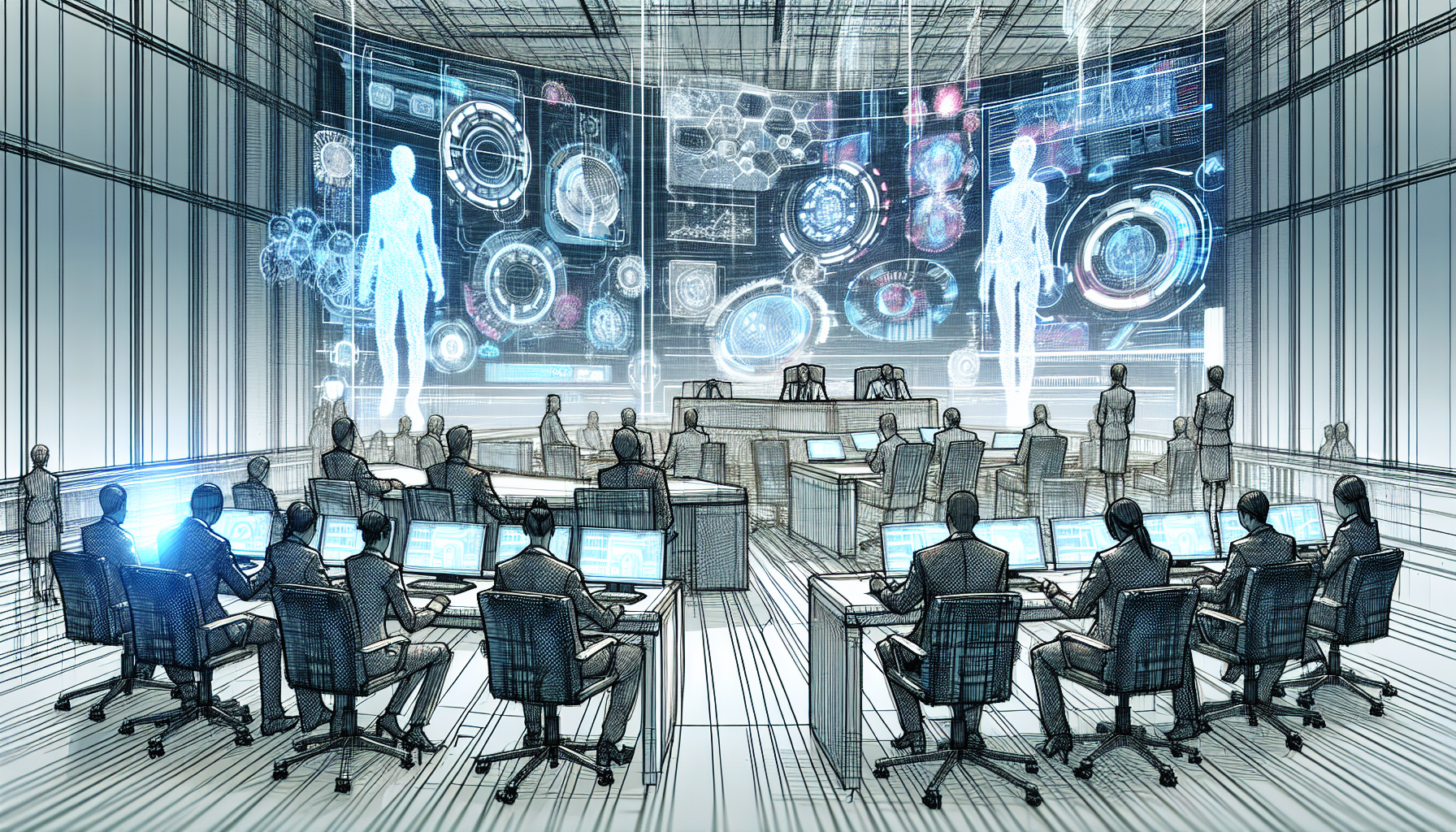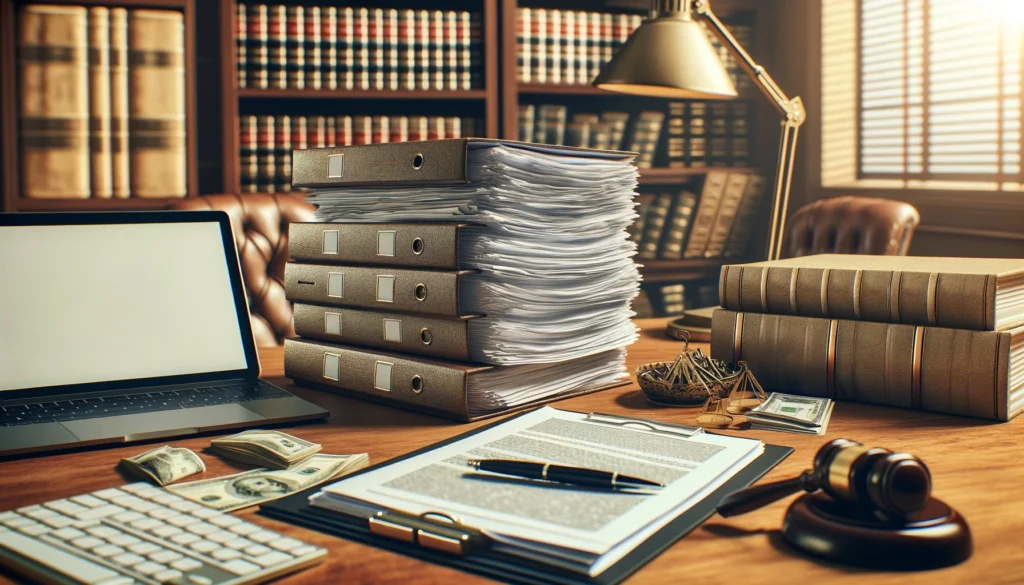
Unleashing the Power of ChatGPT for Enhanced Evidence Collection in Personal Injury Cases
Section 1: Revolutionizing Evidence Collection
Personal injury cases have always posed unique challenges, from deciphering complex medical records to obtaining reliable witness testimonies. The traditional methods of evidence collection, often involving extensive legwork and manual documentation, frequently fall short in today’s fast-paced legal environment.
Lawyers must contend with enormous volumes of data and tight deadlines, making efficient and accurate evidence collection more critical than ever. Traditional methods, although still valuable, often lack the speed and adaptability required to keep up with evolving case complexities. This is where innovative AI tools like ChatGPT can revolutionize the field.
As we transition into the next section, understanding ChatGPT and its underlying technology becomes essential for leveraging its capabilities in personal injury cases.
Section 2: Getting Acquainted with ChatGPT and LLMs
ChatGPT, developed by OpenAI, is a sophisticated language model based on the GPT-4 architecture, capable of understanding and generating human-like text. By analyzing vast datasets, it has gained capabilities that can significantly aid legal professionals in evidence collection.
Key capabilities of ChatGPT include:
- Natural language understanding and generation
- Ability to summarize large volumes of information
- Context-aware responses to user prompts
However, it’s critical to be aware of its limitations:
- Susceptibility to generating plausible-sounding but inaccurate information
- Dependence on the quality and precision of user prompts
Equipped with this knowledge, we can now dive into the core of what makes ChatGPT so valuable for evidence collection: smart prompting.
Section 3: Smart Prompting: The Heart of Efficient Data Gathering
Utilizing ChatGPT effectively relies heavily on the art of crafting precise prompts. A well-structured prompt can yield high-quality, relevant responses that streamline evidence collection.
- Precision Prompts: Be specific with the information needed. For example, instead of asking, “What happened in the accident?” ask, “Describe the sequence of events leading to the collision from the witness’s perspective.”
- Open-ended vs. Closed-ended Prompts: Balance between specific queries and open-ended prompts to garner a fuller picture. Use open-ended prompts for narrative information and closed-ended prompts for factual data.
Generating high-quality responses is an iterative process. Refining prompts based on initial outputs can help zero in on the most relevant details. Next, we’ll explore how to customize these prompts for different types of evidence.
Section 4: Expert Techniques for Tailored Outputs
Customizing prompts to suit specific needs in personal injury cases is fundamental in drawing out the most pertinent information.
Medical Evidence
When dealing with medical records, prompts should focus on extracting critical details clearly and concisely.
- Example: “Summarize the key findings from the MRI report dated March 3rd, 2023, highlighting any signs of traumatic injury.”
Witness Accounts
Crafting prompts to elicit comprehensive witness statements can significantly impact case outcomes.
- Example: “Provide a detailed account of the witness’s observations during the accident, including weather conditions and any unusual behavior.”
Accident Reports
Accident reports are often dense with technical language that can benefit from summarization and clarification.
- Example: “Explain the findings of the accident report by Officer John Doe, focusing on the identified causes of the collision.”
Follow-up queries further enhance clarity and depth, ensuring no critical detail is overlooked. In the next section, we will discuss how ChatGPT can streamline documentation workflows to enhance overall efficiency.
Section 5: Streamlining Documentation Workflows
Automating routine tasks with ChatGPT significantly reduces the time spent on documentation, allowing legal teams to focus on strategic analysis and case preparation.
- Automating Tasks: ChatGPT can draft initial case summaries, organize evidence chronologically, or even standardize client questionnaires.
- Enhancing Collaboration: Seamless integration of ChatGPT in internal communication tools helps keep all team members updated, ensuring consistency and accuracy in evidence handling.
By facilitating these streamlined workflows, ChatGPT not only boosts productivity but also enables legal professionals to reallocate their time toward more complex tasks. Next, we turn our attention to the ethical considerations that come with leveraging AI technologies.
Section 6: Ethical Considerations and Best Practices
The use of AI tools in legal practice demands stringent adherence to ethical standards to ensure the integrity and confidentiality of sensitive information.
- Data Privacy: Implement robust measures to anonymize client data before inputting it into AI systems.
- Client Confidentiality: Ensure compliance with all relevant regulations such as GDPR and HIPAA when dealing with personal and medical data.
- Avoiding Over-Reliance: While AI can provide significant insights, human oversight remains crucial. Validate AI-generated information with traditional methods to ensure accuracy.
Maintaining these ethical guidelines helps in balancing technological advancements with the legal profession’s foundational principles. Finally, let’s explore what the future holds for AI integration in legal practices.
Section 7: Future Implications and Continuous Improvement
Staying abreast of AI developments will be pivotal for legal professionals. Continuous learning and adaptation to new technologies will enable them to leverage these tools effectively and sustainably.
- Follow AI research and updates to anticipate capabilities.
- Engage in continuous professional development focused on AI integration.
With these strategies, legal professionals can remain at the forefront of AI advancements, ensuring they harness its full potential while maintaining ethical standards. And on that note, let’s conclude with some key takeaways.
Section 8: Conclusion: The New Era of Legal Efficiency
The integration of ChatGPT in personal injury cases represents a significant leap toward legal efficiency. Embracing these tools can transform the landscape of evidence collection, enabling lawyers to deliver more timely and effective legal support. It’s time for the legal profession to adopt and adapt to this new era of AI-driven efficiency.


